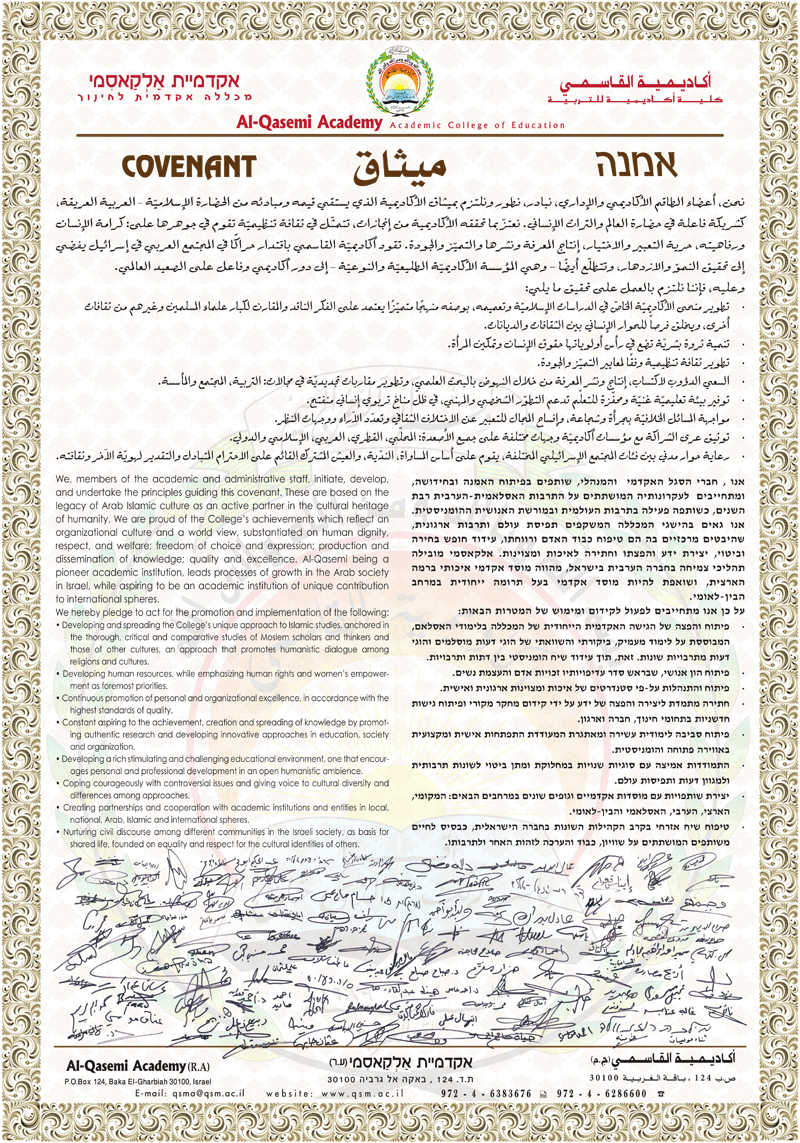Department of Inclusive Education for Children and Youth at Risk
The goal of the program is to bring about a fundamental change in the teaching/learning approach within the program and in the way educators interact. Consequently, the sought-after objective is to equip and prepare an interdisciplinary educational team committed to creating a new educational environment for both students and teachers.
The new learning environment for students essentially consists of a team of teachers characterized by:
- Expansive, inclusive, and individualized interaction with students as opposed to a narrow academic achievement perspective.
- Commitment to students unconditionally, as opposed to students' acceptance being conditional on academic achievement.
- High academic expectations for students versus setting low academic achievement standards.
- Clear behavioral boundaries with empathy versus a system relying on discipline and threats.
- Cultivation and enhancement of feelings of pride and success versus highlighting failure.
- Accepting and supportive treatment versus critical, alienating, and exclusionary behavior.
- Diagnosis and emphasis on the progression sequence versus a binary view of success.
The new working environment for teachers in the program is an educational apparatus characterized by:
- Inclusive dealings with teachers and their needs rather than dealings primarily based on academic achievement.
- Significant investment in the professional development of teachers as opposed to neglect.
- Commitment towards teachers and their dignity rather than ignorance and neglect.
- Sensitivity and inclusion as opposed to alienating criticism.
- Expectations for meeting high professional standards as opposed to lowering expectations.
- Creating an atmosphere that allows comprehensive, empathetic, and genuine collaboration with students' parents versus an accusatory and authoritarian approach.
- Dealing with Arab cultural variables as facilitators of redemption and creators of challenges, as opposed to dealing with them as restrictive and hindering variables.
In light of these tasks, the program will focus on developing knowledge, understanding, and inference regarding the impact of Arab community specificity, Arab family, the educational apparatus, and the school's relationships with families and teachers' relationships with their students. The program will also significantly focus on developing the educational-therapeutic personality of participating teachers. The fundamental assumption is that emotionally mature, developed individuals will be able to achieve the required insight and wisdom and create a long-term commitment to beneficial interaction with students at risk.
In summary, the Rehabilitation Program for the Second Degree at Al-Qasemi Academy - (M.Ed) in the subject of 'Educational Therapy for At-Risk Students' aims to prepare and qualify educators working in education; those who possess the readiness and ability for inclusive learning and teaching characterized by personal insight, openness, social commitment, and a broad understanding of their role as educators and their inclusive interaction with students.


